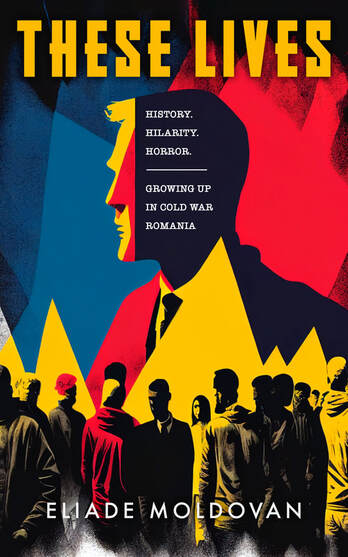|
I requested to emigrate to Canada (Quebec) in 1992 at the Canadian Embassy in Bucharest, Romania. I knew English and, to some degree, French. I studied English at school, and in high school, Russian was added. Only those with “relations”(that my family did not have) could choose a second Western language, so Russian was, by default, the second foreign language of study for me. But my dad forced us (my brother and I) to learn French from a book, “Learn French without a Teacher,” and he never joked about such things.
My wife knew French but nothing of English, so Quebec was the only option. It took a year to complete all the emigration formalities, during which time “Learn French without a Teacher” (that I still had from my childhood) was my only reading. I had a notebook where I wrote down the words I had to learn every day. A few times, I got run over by cars because the French conversation in my head was more important than what was happening on the street. I sold the apartment for $10,000, loaded everything I could carry into seven suitcases, and bought one-way tickets for all of us - my wife, the two kids, and I. We left Romania in 1993 and landed in Montreal, Quebec, where the official language was French. I had a phone number from a colleague from Romania who got there a few months before. He gave us a phone number from a building administrator, a Romanian who had landed in Canada many years ago. That’s how we found accommodation. The apartment was lovely and very clean, with two rooms and a living room, but unfurnished. We spent $2,000 to buy some furniture and a TV. What I understood on the first day in Canada was that, in fact, I had no understanding of what those people were saying in their Quebecois accent. Zero. After one month, I started to understand Quebecois, but we were worried about the money running out quickly. We had to survive a few months without financial help from the government, and I do not remember how much. My wife signed up for the Pharmacist Licensing Exams, which would have taken a year, so the burden was on me to find some work, and I was completely disoriented. Near our house was a community center with a public library, and there I also spotted a small office that I understood could help immigrants. One day, I entered the office to ask for clarification on how I could find work. I always had my immigration documents with me. The clerk was a beautiful young woman in her twenties who smiled all the time. She sealed my fate in Canada, and I have never forgotten her name, even more than 30 years later, although I didn’t write it down anywhere, Emanuelle Marchant. Emanuelle looked at the document I put on the desk. The conversation that followed was bumpy, but I’ll describe the gist. “What do you know to do?” She asked. “I am an electronic engineer.” “Do you know programming?” So, she was not at all interested in what I said. The only programming I knew was that I wrote test programs in machine language for the Independent and Coral, computers no one had ever heard of in Canada. But it was an acute need for programmers in Canada then, and my engineering experience did not help me at all. “A bit of Macro,” I said. “Yeah. So you’re a programmer.” “Not quite, not exactly.” He ignored what I said again. And not because of my accent but because she had her plan. “Look, for programmers, there is a French terminology refresher course at the College de Maisonneuve.” I just couldn’t argue with her. He was looking at me as if to say, take my offer, you fool, don’t be shy. So, I showed up at the college with Emanuelle’s referral. A professor interviewing candidates for the course asked me, “What languages do you know?” “Macro,” I said. “dBase?” I thought of Emanuelle, who sent me there. “A little.” “Next week is a 5-day course on dBase and macros in EXCEL followed by an exam” said the professor. “If you pass it, you follow a nine-month course (a school year), for updating in office applications and dBase.” I paid $1,200 for an old computer to install dBase and EXCEL on it (piracy, of course). I had tears in my eyes for how fast the money was spent, but this was a chance I had to hold on to. Plus, if I took the course, I was paid by the government to take it, about as much as welfare would have been, meaning we had enough to live on without spending any of our own money for the duration of the course. worked on the computer day and night, and I passed that exam. During those nine months, while the course lasted, I studied all day and night - even on the weekends. I took my final exams with an average of 95%. Strange as it may seem, what followed after the course was much more challenging than what I had endured up to that point. At least during those nine months at the College de Maisonneuve, I knew what I had to do. The government helped the emigrants, but the principle was: “If you want to teach a child to swim, throw him into the water.” And I will tell you that the water was ice cold, but about it in the next post. Next... How did I get the first job: First job !! https://www.eliademoldovan.com/blog/episode-2
0 Comments
Your comment will be posted after it is approved.
Leave a Reply. |
|






 RSS Feed
RSS Feed
